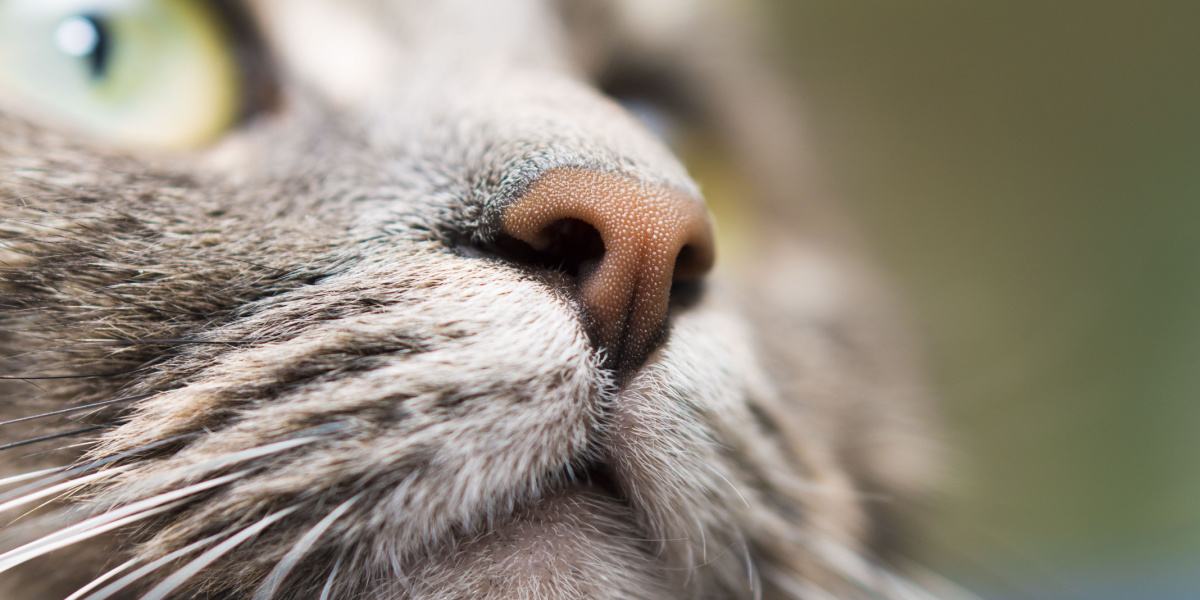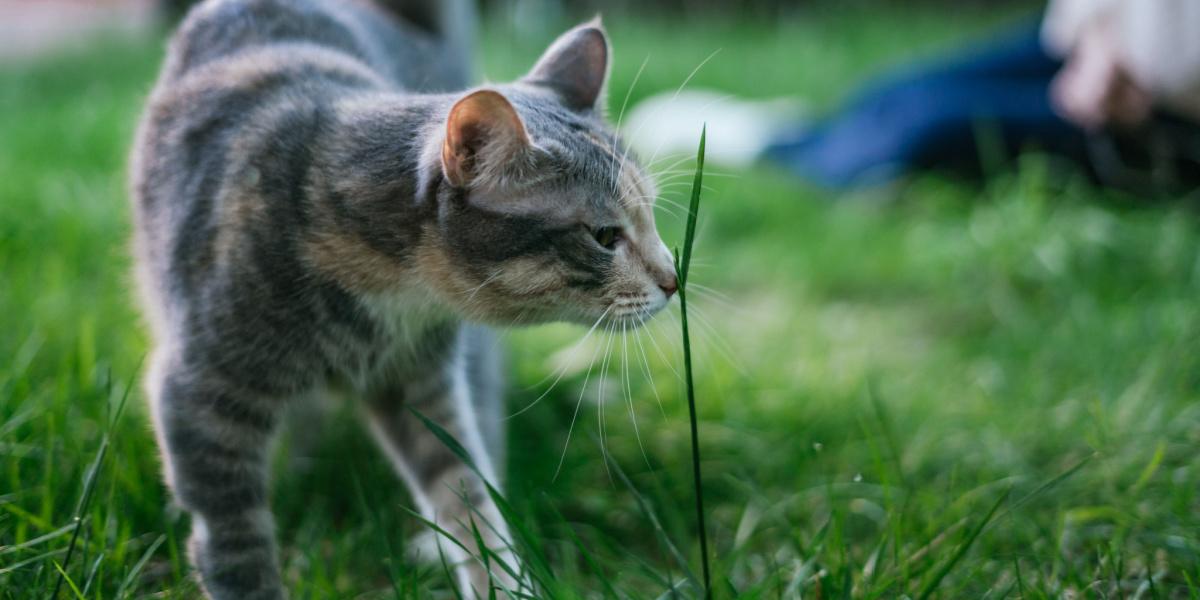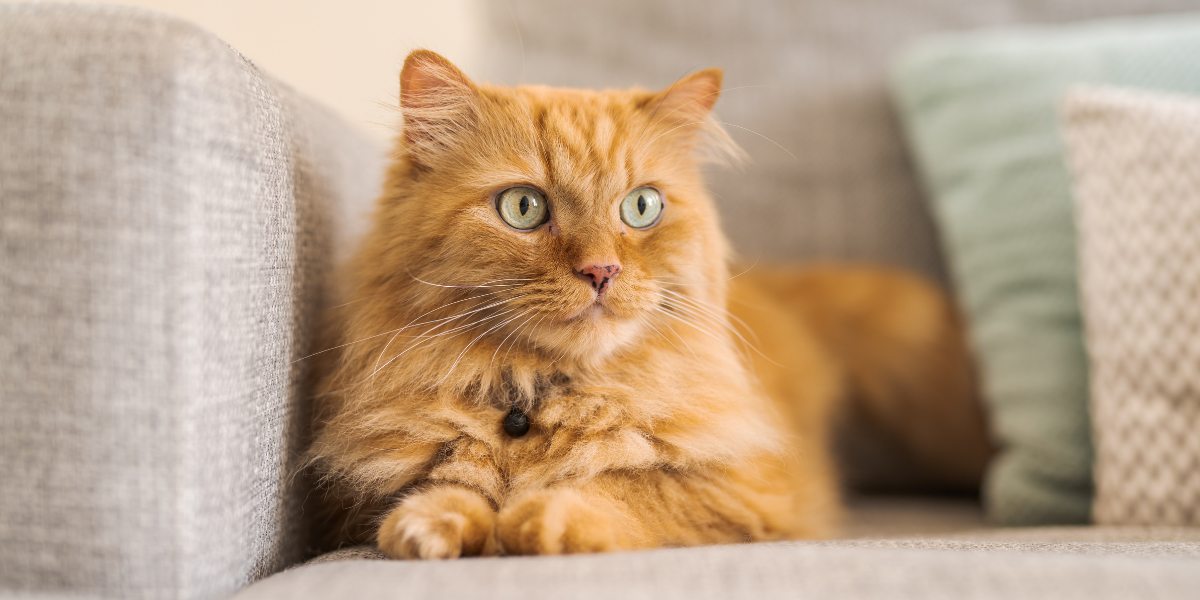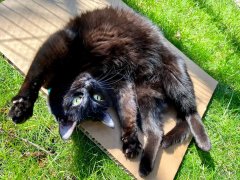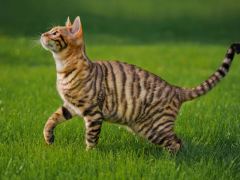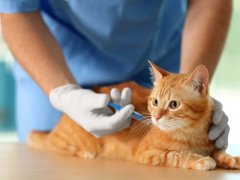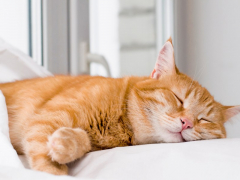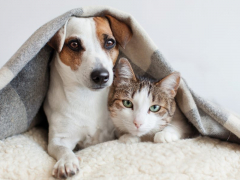As a veterinarian, I am commonly asked by cat owners if a dry nose means that their pet is sick. Although cats’ noses are usually cool and wet, it can be normal for some perfectly healthy cats to have warm dry noses. Healthy feline noses can even vary from wet to dry several times throughout the day.
Most cats have wet noses, but some perfectly healthy cats naturally have dry noses, and the nose can vary from wet to dry several times in one day. Some cats develop a temporary dry nose if they have been sunbathing or sleeping in a warm place, and a dry nose can also indicate dehydration. A cat’s nose might also be wetter than normal due to increased nasal discharge, and this might indicate a problem such as an upper respiratory tract infection.Key Takeaways
It is vitally important to recognize what is normal for your own cat though. Any change from that, especially if accompanied by other signs of ill health, should be checked out by a veterinarian. In this article we will discuss why cats’ noses may vary in their wetness, and when you should worry about your own feline companion’s nose.
Why Are Cats’ Noses Wet?
Many cat owners have woken up to a cold, damp nose nudging their face for attention. Luckily for cats, their little button noses make them too cute to get upset with! So why are cats’ noses usually wet?
The main way that cats sweat to keep cool is via sweat glands in their paw pads, but moisture evaporating off their noses is another way they can avoid getting too hot. Tears drain from the eyes via the nasolacrimal duct into the nose and mouth, helping to keep the nasal cavity and nose itself moist.
Microscopic scent particles are trapped on moist surfaces, so a wet nose helps to enhance cats’ fantastic sense of smell.
Also Read: Cats Sneezing: Causes & Treatment
Why Do Healthy Cats’ Noses Vary From Wet To Dry?
Some cats naturally have dryer noses than others, and if that is normal for your cat then it is nothing to worry about. The wetness of cats’ noses can be affected by many environmental factors such as heat and humidity.
If your cat has been curled up asleep next to a heat source like a radiator or has been sunbathing for hours, you will likely notice their nose is warm and dry afterward.
Also Read: How Many Hours Do Kittens Sleep?
Can a Dry Nose Be a Sign of Illness?
Noticing changes in how wet your cat’s nose is can be a good way of keeping an eye on their health. Cats often don’t drink enough water, and a dry nose can be a sign of dehydration.
Always ensure that your cat has lots of opportunities to top up with fresh water by providing a variety of bowls and water fountains in different locations around the house, and offering wet food, which has a much higher moisture content than dry food.
If you are worried that your cat is dehydrated, especially if they are also showing any of the following symptoms, you should contact your veterinarian:
- Decreased appetite
- Lethargy
- Weight loss
- Vomiting or diarrhea
- Sneezing or coughing
- Watery eyes
- Fever
Dryness of the nose resulting in it appearing scabby, flaky, or cracked definitely warrants a trip to your veterinarian as it could indicate one of the following:
- Sunburn
- Solar dermatitis
- Skin disease, such as bacterial or fungal infection
- Autoimmune diseases such as pemphigus foliaceus
- Nasal cancer
Also Read: How Much Water Should A Cat Drink?
Can a Very Wet Nose Be a Sign of a Problem?
A healthy cat’s nose should be moist, not dripping wet, which could indicate a medical problem.
Although it is normal for cats to have moist noses, some medical conditions can cause an excessive amount of nasal discharge, leading to the nose and surrounding skin becoming very wet as the extra fluid drips out of the nose:
- Upper respiratory tract infections (may be caused by bacteria, viruses, or fungi)
- Nasal cancer
- Foreign material stuck up the nose (more common in outdoor cats)
- Dental disease
- Allergies
Cats naturally lick their noses, but if they start licking more than normal as they try to remove the extra discharge they can sometimes actually make their nose dry rather than wet. Saliva dries quickly, and by constantly licking cats remove the natural moisture, which can lead to the confusing situation of a dry nose despite the excessive discharge in some cases.
Also Read: Why Are Cats’ Tongues Rough?
What Can I Do To Help?
Changes in the wetness of your cat’s nose are generally just their own normal variation. If you notice any of the signs of ill health mentioned in addition to a change in your cat’s nose wetness, please get them scheduled for a checkup with the vet.
Although a dry nose can be normal for some cats, it’s worth checking that the temperature in the house isn’t too high. You can also offer beds in locations away from heat sources like radiators. Cats that enjoy sunbathing are at risk of sunburn, solar dermatitis, and potentially cancer (especially white cats).
Ideally, cats should be kept indoors during the hours of peak sun. If this is not possible, apply a pet-safe sunscreen to their nose and ears. Always ensure your cat has plenty of clean, filled water bowls (and ideally a water fountain) to encourage them to stay hydrated.
Keep your cat up to date with their vaccinations against the respiratory viruses that cause cat flu, and schedule regular checkups with your vet to monitor their general health.
Also Read: 10 Most Dangerous Diseases In Cats
In Summary
If your cat’s nose is wetter or drier than normal, and they seem unwell, take them for a checkup with their vet.
Although most cats have wet noses, it is not necessarily a problem if your cat’s nose is warm and dry instead. Some perfectly healthy cats naturally have dry noses, and in other individuals, the nose varies from wet to dry several times even within one day. Some cats develop a temporary dry nose if they have been sunbathing or snoozing somewhere very warm.
A dry nose can also indicate dehydration. Cats are not always great at drinking enough water so try to encourage them by using water fountains, wet food, and providing multiple water bowls around your house. If your cat’s nose is drier than normal and they are showing other signs of ill health then you should take them for a checkup with their veterinarian.
Your cat’s nose might also be wetter than normal due to increased nasal discharge, and this too can indicate a problem such as an upper respiratory tract infection. The most important thing is to monitor what is normal for your cat, and then you can pick up on subtle, early changes that might indicate a health problem.
Also Read: Why Do Cats Sleep So Much
Frequently Asked Questions
Should my cat’s nose have discharge coming from it?
It is normal for cats’ noses to have a small amount of thin, clear discharge coming from the nostrils. If your cat’s nose is very wet, it might have more discharge than normal coming from it, and this can indicate several problems.
The most common cause would be an upper respiratory infection caused by one of the viruses responsible for cat flu, especially if they are also sneezing and have watery eyes. You should take them to see their veterinarian for an examination and treatment. Remember, it is really important to keep your cat’s vaccinations up to date to help prevent diseases like cat flu.
How do I fix my cat’s dry nose?
First, you need to consider if your cat’s nose actually needs fixing! Some perfectly healthy cats have naturally drier noses, and there is no need to worry if it seems normal for them. It is worth ensuring that they are not spending too much time sunbathing and trying to encourage them to drink plenty of water to help if they are tending to become a little dehydrated.
If your cat’s dry nose is sore, scabby, or flakey, or your cat is generally unwell then they should be checked out by their vet to try and get a diagnosis of what is wrong.
Does a wet nose mean my cat is healthy?
Most cats naturally have a cold, wet nose, as many of us know from being woken up by a bop of it onto our faces. Excessively wet noses can be a sign that your cat is producing too much nasal discharge, and should be checked over by your vet.
A wet nose alone is not enough to guarantee that your cat is healthy. If they are showing any signs of ill health, such as a change in appetite or thirst, weight loss, or vomiting, they should be examined by a veterinarian regardless of whether their nose is moist.
